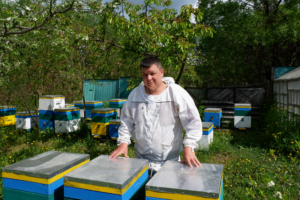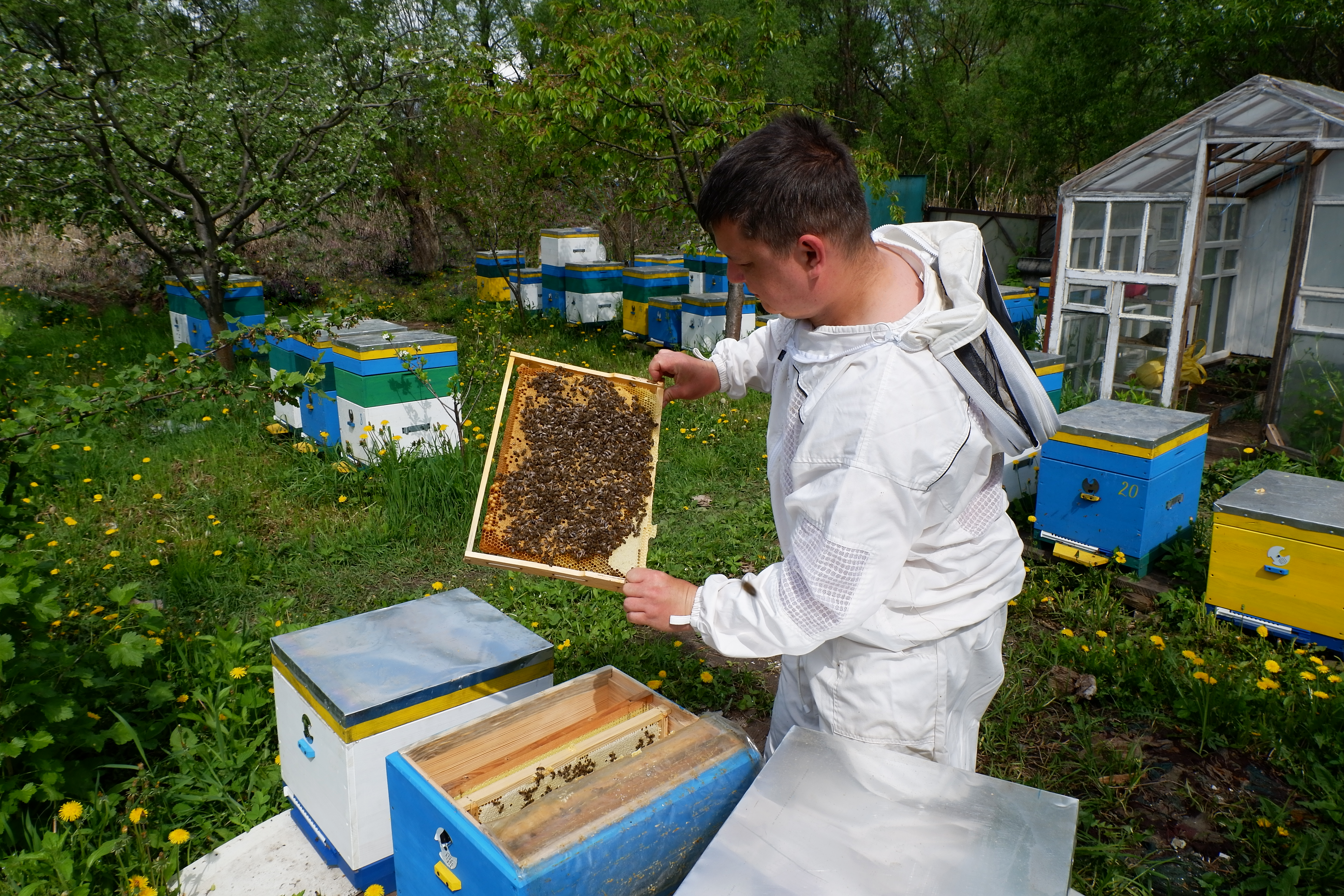Mykhailo Tsybulka from Kharkiv continues developing his family’s apiary despite the war. With assistance from the USAID Economic Resilience Activity (ERA), the beekeeper received consultations on implementing the food safety standard Hazard Analysis and Critical Control Point (HACCP) in his creamed-honey production shop. Read the beekeeper’s story below.
Tsybulka has had a passion for bees since childhood, as his grandfather and father were both beekeepers. As far back as he can remember, he was always near the hives. In 2019, he started running his own business, gradually increasing the number of bee colonies and had plans to expand his business, but then the war broke out.In the spring of 2022, the Tsybulko family left their home and their apiary behind.
“My grandfather Pavlo had been running an apiary in Kharkiv Oblast since 1948, and as a child, I always followed him. I remember spending all my time at the apiary. Four years ago, I decided to develop the apiary myself. When the full-scale war began, my family and I moved to Ivano-Frankivsk because there was heavy shelling in Kharkiv,” Tsybulko says.
Over the past year, honey prices on the Ukrainian market have fallen, forcing the family to look for ways to earn more money. So they decided to produce creamed honey. But they needed money to expand the apiary, buy equipment for making the creamed honey, and also needed to get the necessary permission to sell this product. Thanks to a grant from the state’s Erobota program, Tsybulka obtained funds to expand the apiary and create an additional 60 hives to increase the total to 100 hives. This year, the apiary will be nomadic again to get better honey and help the bees collect it.
“I received the grant and as I can work with wood, I make the hives myself, which is profitable. Last year, I bought wood and made hives in winter and spring, and thanks to this grant, my apiary has grown 2.5 times. The next step is to fill the hives with bee colonies, I will take some of my own bees, and some I plan to buy,” the beekeeper says.
Mykhailo received another grant from the International Organization for Migration (IOM) to launch the production of cream honey. With the grant money, he purchased equipment that has already allowed him to start production – tables, shelves, furniture, a dispenser, and raw materials (fruit sublimates). But to sell such a product, you need to have the necessary certification and permits.

On the free Prometheus platform, the beekeeper learned about the certification requirements to produce bee products. He received additional knowledge on HACCP certification from ERA consultant Olha Luchka. Following her expert guidance, he arranged the equipment in the shop to comply with HACCP requirements.
“Until now, we have been selling honey to wholesale buyers, but we decided that we could increase the value add, so we will make cream honey. Selling such a product requires certification. ERA consultant Olha Luchka helped us understand the main stages of HACCP implementation and explained the importance of this certification for us as small honey producers and the prospects it opens up. We have now applied for an operational permit from the State Service of Ukraine on Food Safety and Consumer Protection. With this document, we will be able to sell our cream honey,” says Mykhailo.
Right now, the apiary is in its active season – trees and grasses are blooming, and bees are collecting May acacia honey.





